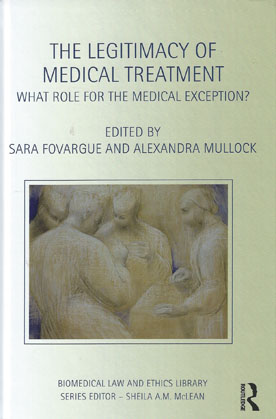
The adoption of many treatments and procedures within medicine is far from straightforward, particularly when such treatments are ethically contentious.
The development of legitimate abortion, organ donation, gender reassignment and non-therapeutic cosmetic surgery have all raised troubling ethical, legal and clinical issues. This book examines the various factors that legitimatise a medical procedure.
The book brings together a range of internationally and nationally recognised academics from different disciplines including law, philosophy, medicine, health economics, and sociology. Contributing chapters address such issues as clinical judgement and professional autonomy, the role of public interest, and the influence of resource allocation in decision-making. In doing so the book explores how the law, the medical profession and the public interact in order to determine whether a new or ethically contentious procedure should be regarded as legitimate.
This book will be a great interest and use to researchers and students of bioethics, medical law, and the sociology of medicine.